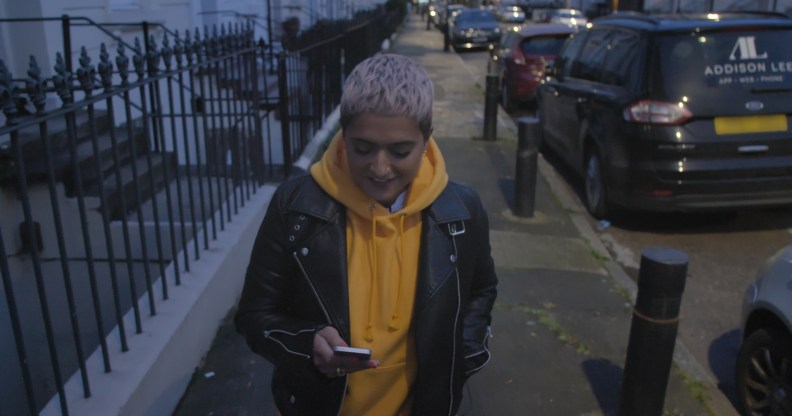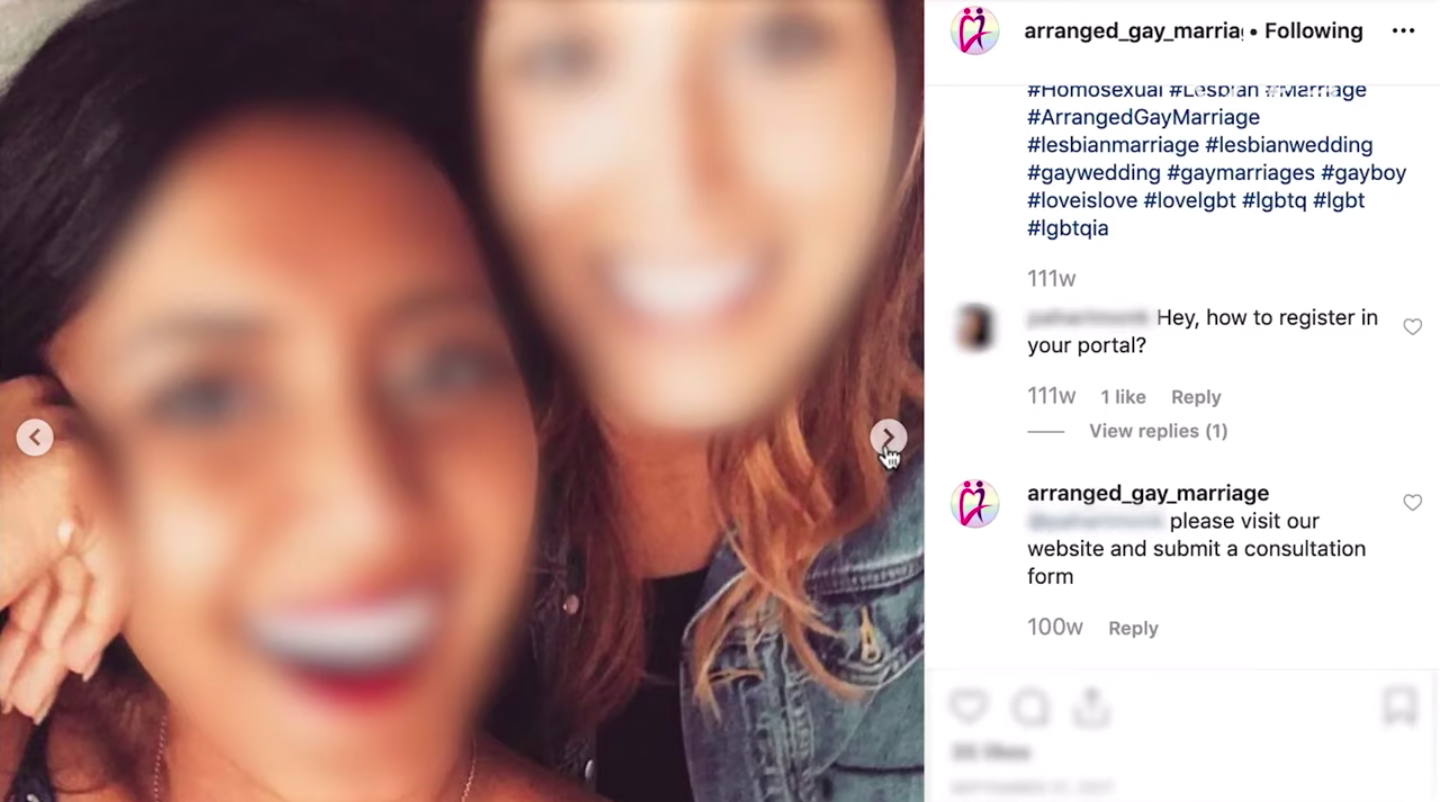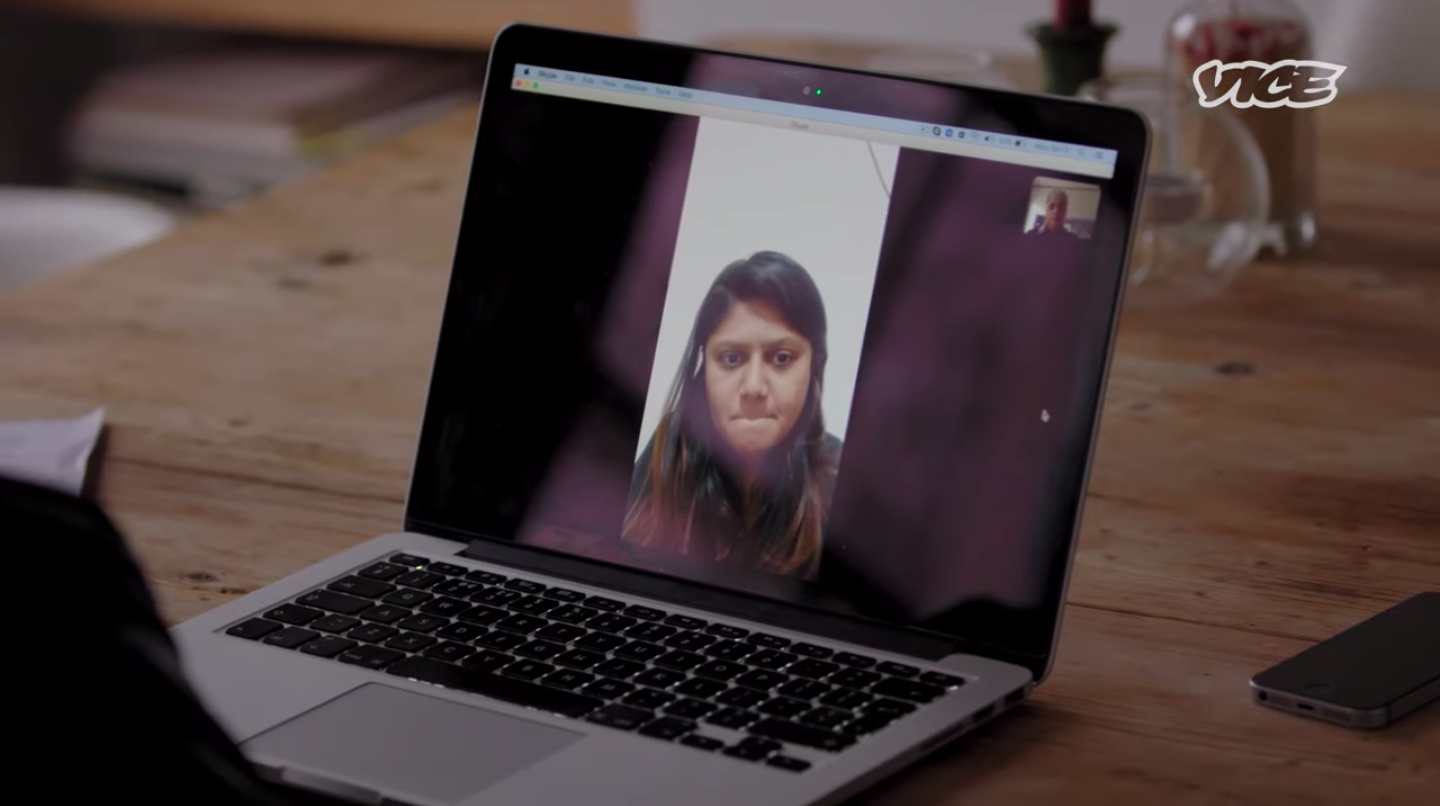This is how a cruel arranged marriage scam is manipulating ‘vulnerable’ LGBT+ Asians in search of love

Reeta Loi, founder of Gaysians, investigated fake profiles for a VICE documentary on the Gay Arranged Marriage Bureau (YouTube/Vice)
Reeta Loi, founder of Gaysians, investigated fake profiles for a VICE documentary on the Gay Arranged Marriage Bureau (YouTube/Vice)
Thousands of LGBT+ Asians looking for love may have been deceived by a “manipulative” arranged marriage scam cashing in on marginalised communities.
The Gay Arranged Marriage Bureau claims to be the first and only LGBT+ marriage service in India. For a hefty $900 fee, its founder Urvi Shah promises to find her clients the perfect match, linking them with other LGBT+ Asians around the world.
The service has been endorsed and celebrated by multiple media platforms and even has the gay prince of Rajpipla, Manvendrasingh Gohil, on its board as a consultant.
There’s just one problem – there’s not a single piece of evidence it actually exists.
The many testimonials of happy couples are all fake; the profiles of potential love interests are replicated hundreds of times across the internet; and the Bureau’s office address is actually just a bus stop in Delhi.
The scam was uncovered in a new VICE documentary by Reeta Loi, an LGBT+ activist, artist and founder of Gaysians.
“It shows a complete and total disrespect for our community,” Reeta told PinkNews. “It completely underestimates the power that we have globally.
“What I would like this documentary to do is show that we are a community, we have a lot of clout. We’re not disparate, vulnerable people around the world that can be capitalised upon. And if this is something you choose to do, then you will be outed for it. And your organisation will be closed down.
“Because the last thing I want is for anybody else to sign up to the service and to go through that experience.”
Reeta signed up to the dating service herself last year looking for longterm love. Having been disowned by her conservative Punjabi family, she longed to regain that cultural connection with a partner.
Although initially sceptical, she was reassured by Shah’s apparent sincerity and her promise that the Bureau would take on the traditional matchmaking role of parents.
“[Shah] impressed me because she talked about the fact that they were acting sort of on behalf of parents, which I think is really beautiful, because so many of us don’t have that family support, including me. I haven’t had that family support for coming up to 14 years.
“So there’s that personal touch, because they get to know you and they have a view of who they can match you with… it really struck a personal and emotional chord for me.”
‘Psychotic’ Arranged Marriage Bureau founder played on LGBT+ clients’ vulnerabilities.
Shah claimed to have 2,400 people signed up to the service in India, with a total of 3,700 clients globally. But after 11 months of excuses, Reeta received just two dating profiles – none of them matches, and none of them credible.
Reeta spoke with another LGBT+ Asian named Keith who was having the same experience with the service. A Google search confirmed their suspicions and showed that the exact wording of the profiles was copied and pasted across several other dating sites.
She then contacted the Bureau’s poster couple, Anu Hazra and Neeral Sheth, who insisted they had never used the service. Conversations with several more of the “success stories” revealed the same – not a single one had heard of the Gay Arranged Marriage Bureau or were aware that their images were being used.
“I was absolutely livid,” Reeta said.
“What we’re looking at is a woman who has decided to capitalise on a really vulnerable community, take their money, and promised them that she can find them love.
“And we’re not talking about a hookup. We’re talking about somebody that wants to spend their life with somebody, who may not be out to their parents, but feels like if I meet somebody who’s a good match, if I find someone [within this tradition of arranged marriage], that’s how I might be able to sell it to my family.
“These are people’s lives and they’re sitting there hoping that they’re going to meet somebody and getting these profiles through wondering if that’s their person.”
The dark side of it really started to come through.
What makes Shah’s deception particularly “psychotic” was her apparent understanding of the vulnerability and marginalisation of LGBT+ Asians – which she deliberately took advantage of.
“The dark side of it really started to come through,” Reeta said, remembering how Shah professed to empathise with her struggle, and even claimed to have closeted LGBT+ staff working for her.
“To be able to say those particular things but also at the same time, to be sourcing and sending fake profiles, the duplicity of that is really alarming.
“There are loads of ways to scam people on the internet if you want to, but I think on a human level, this is one of the worst ways to do it. That was the most horrifying thing about it.”
After doggedly pursuing Shah for months Reeta finally got to confront her, but sadly didn’t get the closure she was seeking. Shah apologised while claiming ignorance, and has yet to face any repercussions.
Because her claims of a 3,700-strong client base are likely to be a “fabrication”, it’s impossible to know the extent of the scam or how much money she stole. But with LGBT+ acceptance in India growing, Reeta suspects there will be “many more stories to come” like this one.
“It’s a really fantastic exciting time for us as a community in terms of reaching this completely new and very powerful space. But that does then draw more attention to us that potentially attracts more scammers,” she said.
Reeta called for more work on safeguarding LGBT+ dating apps, and for LGBT+ Asians to be mindful of services that take advantage of their vulnerability to promise love at a price. The experience hasn’t soured her, though, and the good news is she’s since found love on her own terms.
“I believe that everyone deserves love. I think it’s a basic human right. And at the moment, it’s the LGBT+ community that seems to be the only faction of humanity that are being denied that right,” she said.
“And I think that the more that we can celebrate the stories of love that we have in our community, the better really to give people hope.”
The full documentary is available to watch on VICE’s YouTube channel from April 27.



